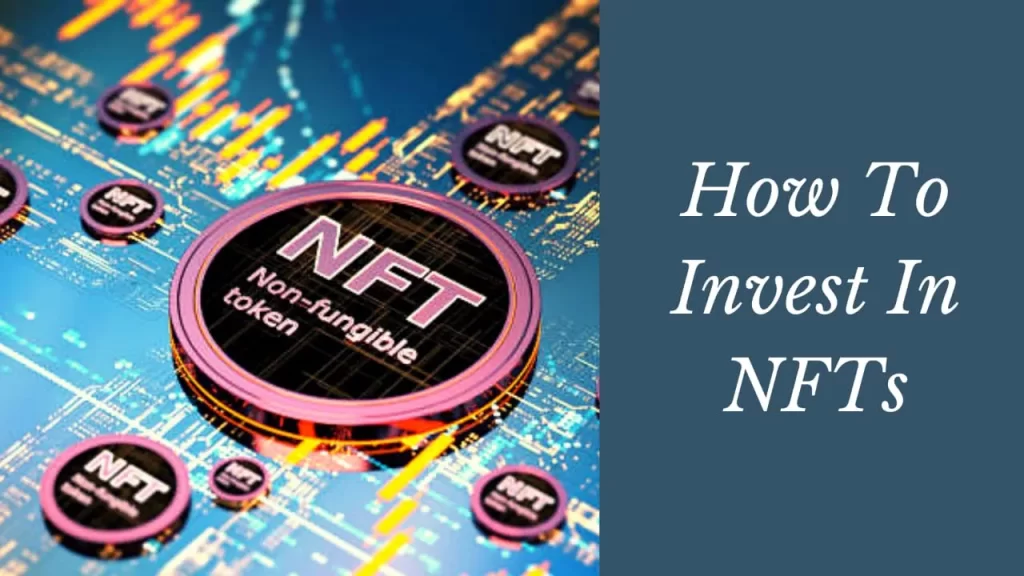Introduction – How To Invest In Index Funds
Many people think that they need to be fortunetellers to make the right decisions when it comes to investing. But this simply isn’t the case – you can invest your money in a way that minimizes risk and leaves room for growth without having to be an expert.
Index funds are a great option for anyone looking to start investing, and today we’re going to talk about what they are, how they work, and why you should consider using them. You’ll have all the information you need to start investing in index funds by the end of this post!
What Is An Index Fund?
An index fund is a type of mutual fund that aims to track the performance of a specific market index, such as the S&P 500 or the Dow Jones Industrial Average. Index funds are passively managed, which means that they are not actively managed by a fund manager who decides which securities to buy or sell. Instead, the fund’s portfolio is constructed to match the components and weightings of the underlying index.
Index funds offer investors several advantages, including low costs, diversification, and simplicity. They can be a good choice for investors looking for a simple way to invest in the stock market without worrying about picking individual stocks.
However, it’s important to remember that index funds are not without risk. They are subject to the same risks as the underlying market index, including market volatility and economic downturns. Nevertheless, index funds can be a good way for many investors to get exposure to the stock market while minimizing costs and complexity.
Why Invest in index funds?
There are several reasons you might want to consider investing in index funds:

- As we mentioned earlier, index funds offer broad diversification, which can help reduce risk.
- Index funds have low expense ratios, which means you keep more of your investment gains.
- Index funds are generally very tax-efficient.
Another reason to consider investing in index funds is that they tend to outperform actively managed funds over the long run. Active managers typically incur higher fees and expenses, which can eat into their returns. Additionally, active managers often make poor investment decisions that can drag down performance.
Benefits of Investing in Index Funds
Index funds are a type of mutual fund that is designed to track the performance of a specific market index. These funds can be an attractive investment option for many investors, as they offer several benefits compared to investing in individual stocks or actively managed mutual funds. Some of the main benefits of index funds include:
1. Low costs and fees – Because index funds simply seek to track the performance of a particular stock market index, they do not require the same level of management and oversight as actively managed mutual funds. This means that these mutual funds have much lower annual expenses than their actively managed counterparts, which can add up significantly over time.
Wanna Investing In NFTs But Have No Idea ??? Click Here
2. Diversification – Index fund portfolios typically contain dozens or even hundreds of different stocks, which helps reduce the investment’s overall risk. Since individual stocks can be very volatile, having many holdings in an index fund portfolio can help smooth out returns and minimize overall volatility.
3. Ability to consistently outperform market indexes – While it is impossible to predict stock price movements completely, index funds have a historical track record of outperforming their underlying benchmarks over time due to their lower costs and fees. This means that investors who use index funds may be better able to achieve higher returns than if they had simply invested in a broad market index like the S&P 500 or Dow Jones Industrial Average.
Despite these benefits, there are also some downsides that investors should consider before purchasing an index fund. For example, these funds can underperform during market turmoil or when a particular stock market index is experiencing strong gains.
Additionally, investors should be aware that index funds do not offer the same potential for capital appreciation as individual stocks or actively managed mutual funds.
Overall, index funds can be a helpful tool for investors looking to diversify their portfolios and minimize costs. However, it is important to understand the advantages and disadvantages of these types of investments before making any decisions.
How to invest in index funds?
1. Firstly, decide what you want your portfolio to include. You can choose individual stocks, bonds, or mutual funds (such as index funds). Index investments are typically chosen by investors who prefer a hands-off approach since index funds simply mirror the performance of an existing market index. They are less risky than other investments, and they tend to have lower fees than actively managed funds.

2. Once you’ve decided on the type of investment you’d like to make, it’s time to choose specific securities that match your risk tolerance and goals for return on investment (ROI). If you’re investing in individual stocks instead of an index fund, then do your research and pick companies with strong fundamentals and profitability prospects if ROI is important.
Have Little Money We Have The Best Ideas For Investment Read Here
3. Now that you’ve decided what type of index funds to invest in, it’s time to choose which ones! You have many options for choosing the right index fund for your needs and goals. Options like funds with low expense ratios, a great record, or even socially responsible investment funds are all viable options. Do some research online and look at what your broker offers before making your final decision.
4. The next step is perhaps the hardest: sticking to your plan! Once you’re invested in an index fund, don’t panic if things aren’t going exactly as planned down the road; remember that market fluctuations are normal, and everyone has ups and downs when investing over time. Make sure you review your portfolio periodically to ensure it’s still on track to meet your needs.
Index investing can be a simple and effective way to build wealth over time, especially if you have a long-term investment horizon. By following these steps, you can start investing in index funds today and enjoy the potential benefits of this type of investment!
Four index funds to get you started
There are many different index funds available, but these four are a good place to start.

1. Vanguard 500 Index Fund (VFINX)
This fund tracks the S&P 500 Index, which comprises large-cap stocks. It has an expense ratio of just 0.14%, making it one of the most affordable options.
2. Vanguard Total Stock Market Index Fund (VTSAX)
This fund tracks the entire U.S. stock market, giving you exposure to small-, mid-, and large-cap stocks. It has an expense ratio of 0.04%.
3. Vanguard International Stock Index Fund (VGTSX)
This fund tracks the MSCI EAFE (Europe, Australasia, and the Far East) Index. It’s a good choice if you want to gain exposure to international stocks. It has an expense ratio of 0.38%.
4. Vanguard Total Bond Market Index Fund (VBMFX)
This fund tracks the Barclays U.S. Aggregate Bond Index, including all types of bonds such as government bonds, corporate bonds, and mortgage-backed securities. It has an expense ratio of just 0.07%.
Conclusion
Now you understand the basics of How to start investing in index funds, How To Invest In Index Funds and How to invest in Index Funds. With this knowledge, you are better positioned to make informed decisions about where to invest your hard-earned money.
Remember to always do your research before investing in any asset and consult with a financial advisor if necessary. Thanks for following along on our tour of the exciting world of Investments!




